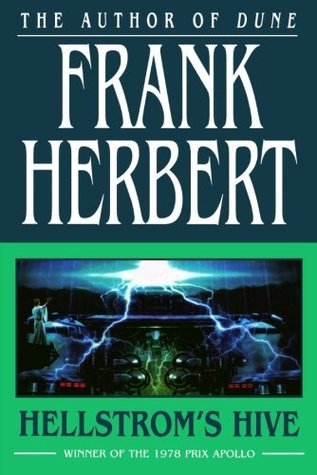
Hellstrom's Hive
1973
First Published
3.69
Average Rating
320
Number of Pages
America is a police state, and it is about to be threatened by the most hellish enemy in the world: insects. When the Agency discovered that Dr. Hellstrom's Project 40 was a cover for a secret laboratory, a special team of agents was immediately dispatched to discover its true purpose and its weaknesses—it could not be allowed to continue. What they discovered was a nightmare more horrific and hideous than even their paranoid government minds could devise. First published in Galaxy magazine in 1973 as "Project 40," Frank Herbert's vivid imagination and brilliant view of nature and ecology have never been more evident than in this classic of science fiction.
Avg Rating
3.69
Number of Ratings
3,834
5 STARS
21%
4 STARS
37%
3 STARS
33%
2 STARS
7%
1 STARS
2%
goodreads
Author

Frank Herbert
Author · 71 books
Frank Herbert (1920–1986) was an American novelist best known for the landmark science‑fiction epic Dune, a visionary saga that fused ecology, politics, religion, and power into a new literary architecture for the genre. Dune won the Hugo and Nebula Awards and spawned a cycle of sequels—Dune Messiah, Children of Dune, God Emperor of Dune, Heretics of Dune, and Chapterhouse: Dune—that deepened its philosophical reach while shaping modern world‑building and serialized storytelling. Beyond Dune, Herbert’s craft ranged from social SF like The Dosadi Experiment to ecological thrillers such as The Green Brain, each marked by rigorous systems thinking, layered prose, and moral ambiguity. His influence endures in the canon of speculative fiction: a writer who proved science fiction could be intellectually audacious, commercially vital, and artistically consequential.